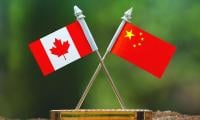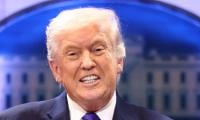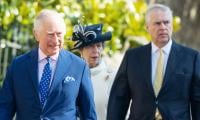Sunak’s China policy
With Rishi Sunak’s dramatic entry into 10 Downing Street as the new British premier, China-UK relations were expected to hit a new low because of Sunak’s aggressive anti-China tone in his run-up to the leadership of the Conservative Party.
However, when reports emerged about his scheduled meeting with President Xi Jinping on the sidelines of the G20 summit in Bali, many analysts were expecting that PM Sunak would follow the examples of his colleagues from the US, Australia, Germany and France to have some ice-breaking-kind of session to start a new phase of Sino-UK relationship. However, the last-minute cancellation of the Xi-Sunak meeting, on the pretext of “scheduling issues” because of a missile that killed two people in Poland near its border with Ukraine, has in fact inversely damaged the already soured relations between the two countries.
There is now too much ambiguity and distrust in the Chinese side about the credibility of the cancellation excuse being propagated by the British foreign ministry. The fact is that face-to-face meetings at the G20 summit between President Xi Jinping and US President Biden, Australian PM Albanese, French President Macron and German Chancellor Scholz, despite not finding something ‘concrete’ in terms of diplomatic discourse, have at least enabled all the participants to build personal rapport with each other for better communication in the coming days. An acute trust deficit is palpable in the China-UK ties, and the Xi-Sunak meeting could have played a crucial role in setting a new frank tone between the two, and building the ground to prevent miscalculations and mitigate the mutual scepticism.
Prime Minister Rishi Sunak, who used aggressive anti-China rhetoric during his campaign for the slot of British prime minister, is considered to be among the fiercest China hawks in the British political elite. In his first telephonic call with US President Biden, after taking charge of his new assignment, Sunak displayed the tone of his policy towards China by pledging to work closely with the US in the Indo-Pacific region to counter “China’s malign influence.” This telephonic call immediately signaled that we should brace for further high-voltage anti-China hype from the new British prime minister in the coming days.
When Rishi Sunak and Liz Truss were trying to win the leadership of the Conservative Party, they were indulged in a frantic competition of China-bashing to prove themselves as the bigger China hawk to lure the Tories. “For too long, politicians in Britain and across the West have rolled out the red carpet and turned a blind eye to China’s nefarious activity and ambitions. I will change this on Day 1 as prime minister” – this is how Sunak spoke while campaigning for the leadership of the Conservative Party leadership just two months ago.
In a series of tweets posted on July 25, as a part of highly vitriolic campaign against Beijing, PM Sunak appeared highly unreasonable by declaring that Britain’s 30 Confucius Institutes, most of which are Chinese government-run facilities located on British university campuses, would be shuttered under his government’s new China policies. He has never hesitated in bluntly expressing his anti-China sentiments. He considers the leadership of the Communist Party and China as “the largest threat to Britain and the world’s security and prosperity this century”. He has many times divulged his plan to cobble together an “international alliance of free nations to tackle Chinese cyberthreats” and empower Britain’s security agencies to “counter Chinese industrial espionage.”
Indubitably, Prime Minister Rishi Sunak belongs to that cohort of Western leaders who have been deeply immersed in an anti-China mindset – a throwback to the cold-war era when the Western media’s decades of incessantly one-sided propaganda campaign against the Soviet Union nurtured a generation of politicians with awfully biased perception about communism and the Soviet leadership.
The sudden cancellation of the Xi-Jinping meeting does not augur well for the resurrection of trust between the two sides. With Sunak in Downing Street, it is being expected that China-UK relations will further cool down in the coming days. One argument, however, is that, crippled by deep-rooted domestic economic woes and on-going infighting within the Conservative Party as well as growing public approval ratings for the Labour Party, Sunak would desist from treading on his anti-China road.
A second argument is that, being a pragmatic financial manager, Sunak can’t ignore the fact that China is now the largest source of imports for the UK worth 63.6 billion pounds ($611 billion) or 13.3 per cent of all goods imports, and he will desist from antagonizing Beijing because of such inordinate dependence on trade with China. These arguments are much too optimistic. It is expected that, though himself not a populist leader, Sunak will try to copy other populist leaders like Trump who always created the China hype to divert attention from his poor performance. Once the dust settles and Sunak enters into the third and fourth month of his premiership, the anxiety over the debilitating economy will again start inciting the British public and then Sunak will be needing a ‘detractor’ to offset the mounting pressure.
The ‘China threat’ provides an ideal hinge for Sunak to deflect the pressure from domestic politics. He will certainly try to open a new front in foreign policy to find some solace and certainly adopt a more aggressive tone against China so as to project himself as a strong-nosed leader and to dilute the media attention on his flawed economic policies that failed to preempt the cost-of-living crisis.
PM Sunak has mounting challenges at home: the prevailing political upheaval, a cost-of-living crisis, inflation with skyrocketing energy prices, and supply chain issues. His main attention will certainly be on repairing the debilitating economy, taming the financial markets, and – more than anything else – restoring public trust in the Conservative Party. He needs to tread carefully in the domain of foreign policy and any new tussle with Beijing will complicate matters for him.
The writer is a freelance contributor.
-
 China Cuts Anti-dumping Duties On Canadian Oil Imports After Final Trade Decision
China Cuts Anti-dumping Duties On Canadian Oil Imports After Final Trade Decision -
 Prince Harry, Meghan Markle Make Major Change To Strategy To Please Royal Family
Prince Harry, Meghan Markle Make Major Change To Strategy To Please Royal Family -
 Chester Bennington’s Mental Health Story And Lasting Legacy
Chester Bennington’s Mental Health Story And Lasting Legacy -
 John Cusack Gears Up To Give Fans Exciting Surprise On Late-night Television
John Cusack Gears Up To Give Fans Exciting Surprise On Late-night Television -
 Yerin Ha Opens Up About Shocking Diagnosis Post ‘Bridgerton’ Season 4
Yerin Ha Opens Up About Shocking Diagnosis Post ‘Bridgerton’ Season 4 -
 Meghan Markle, Harry Leave King Charles, Prince William Furious With Latest Move
Meghan Markle, Harry Leave King Charles, Prince William Furious With Latest Move -
 NASA Announces New Artemis Moon Mission Aimed At Expanding Astronauts’ Exploration Efforts
NASA Announces New Artemis Moon Mission Aimed At Expanding Astronauts’ Exploration Efforts -
 Everything To Know About Justin Bieber's Facial Paralysis
Everything To Know About Justin Bieber's Facial Paralysis -
 Morgan Stanley Predicts AI To Replace Tasks Not Workers
Morgan Stanley Predicts AI To Replace Tasks Not Workers -
 Anthropic Dario Amodei Calls White House Response ‘retaliatory’ In AI Safety Dispute
Anthropic Dario Amodei Calls White House Response ‘retaliatory’ In AI Safety Dispute -
 Tia Mowry Breaks Silence On Angelina Jolie Asking 'unbelievably' Personal Question: 'Wilder'
Tia Mowry Breaks Silence On Angelina Jolie Asking 'unbelievably' Personal Question: 'Wilder' -
 Savannah Guthrie Speculations 'sadly' Coming True About Mother Nancy
Savannah Guthrie Speculations 'sadly' Coming True About Mother Nancy -
 Trump Administration Warns Of Slow Payouts For Tariff Refunds Amid Intensifying Trade Disputes
Trump Administration Warns Of Slow Payouts For Tariff Refunds Amid Intensifying Trade Disputes -
 Princess Beatrice 'far From Comfortable' After Father Andrew's Arrest
Princess Beatrice 'far From Comfortable' After Father Andrew's Arrest -
 Sarah Ferguson’s Dual Cancer Journey
Sarah Ferguson’s Dual Cancer Journey -
 GTA 6 Security: Rockstar Blocks Leaks Ahead Of Launch
GTA 6 Security: Rockstar Blocks Leaks Ahead Of Launch



